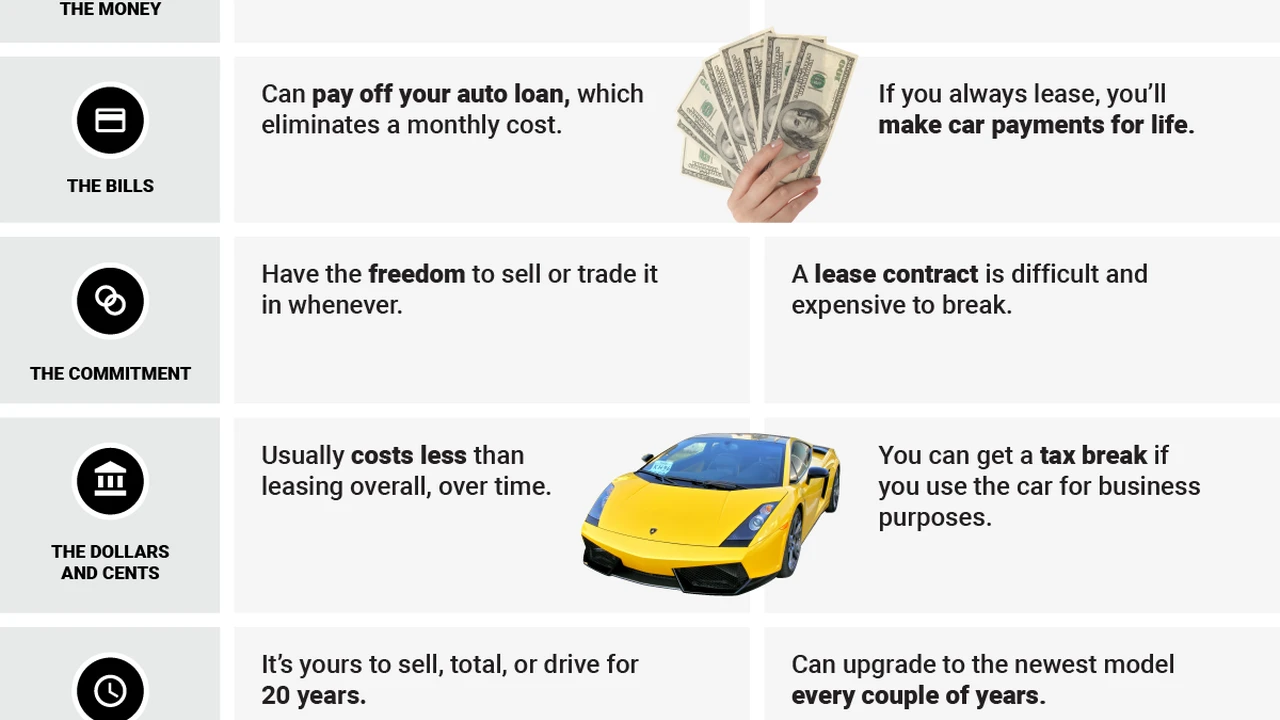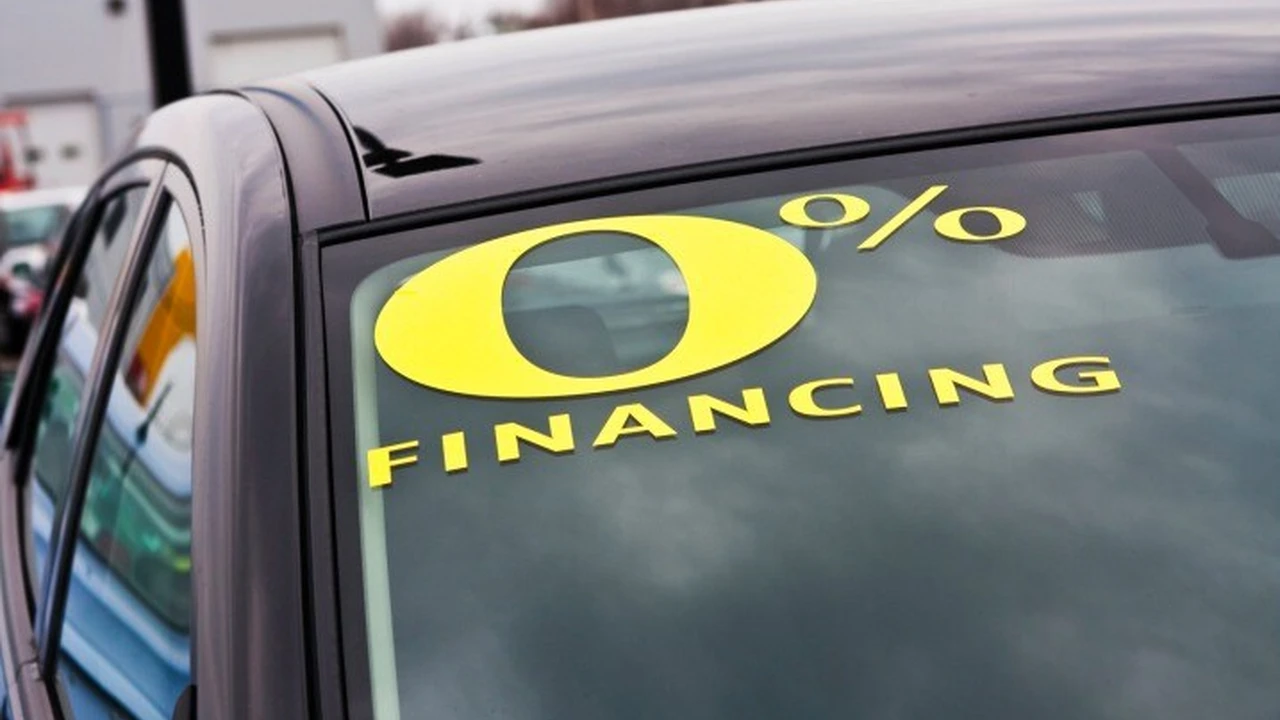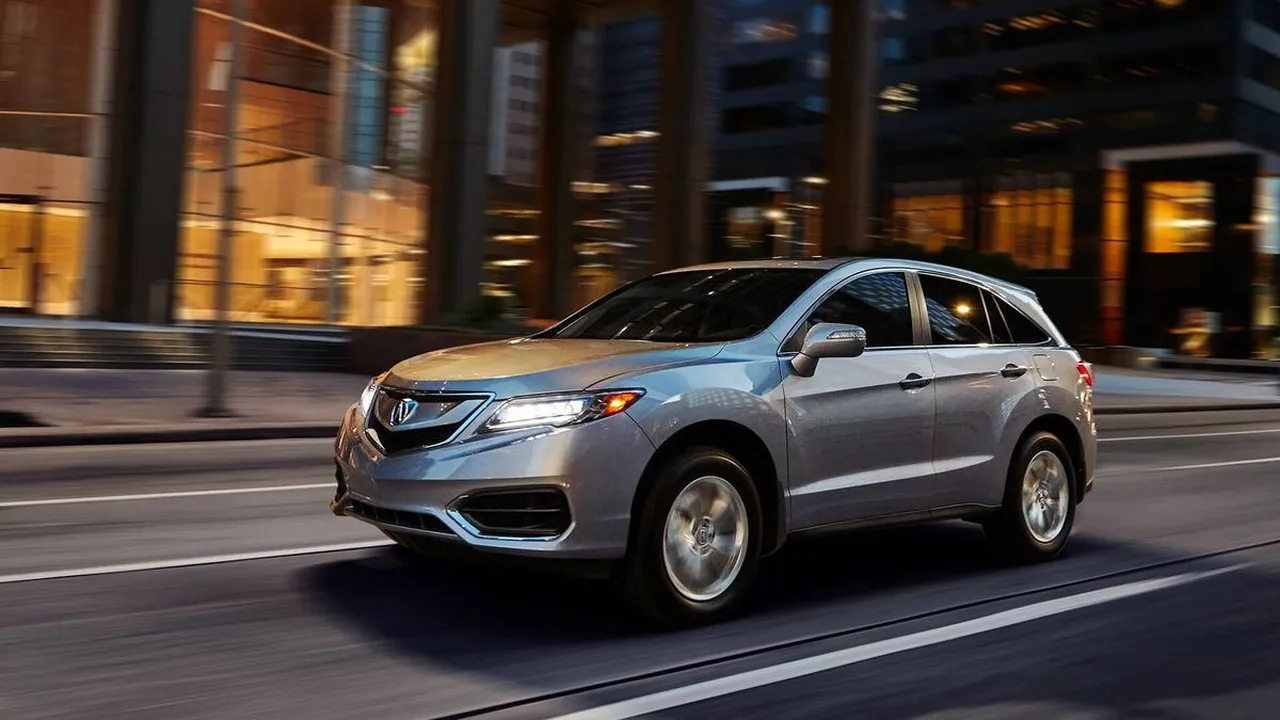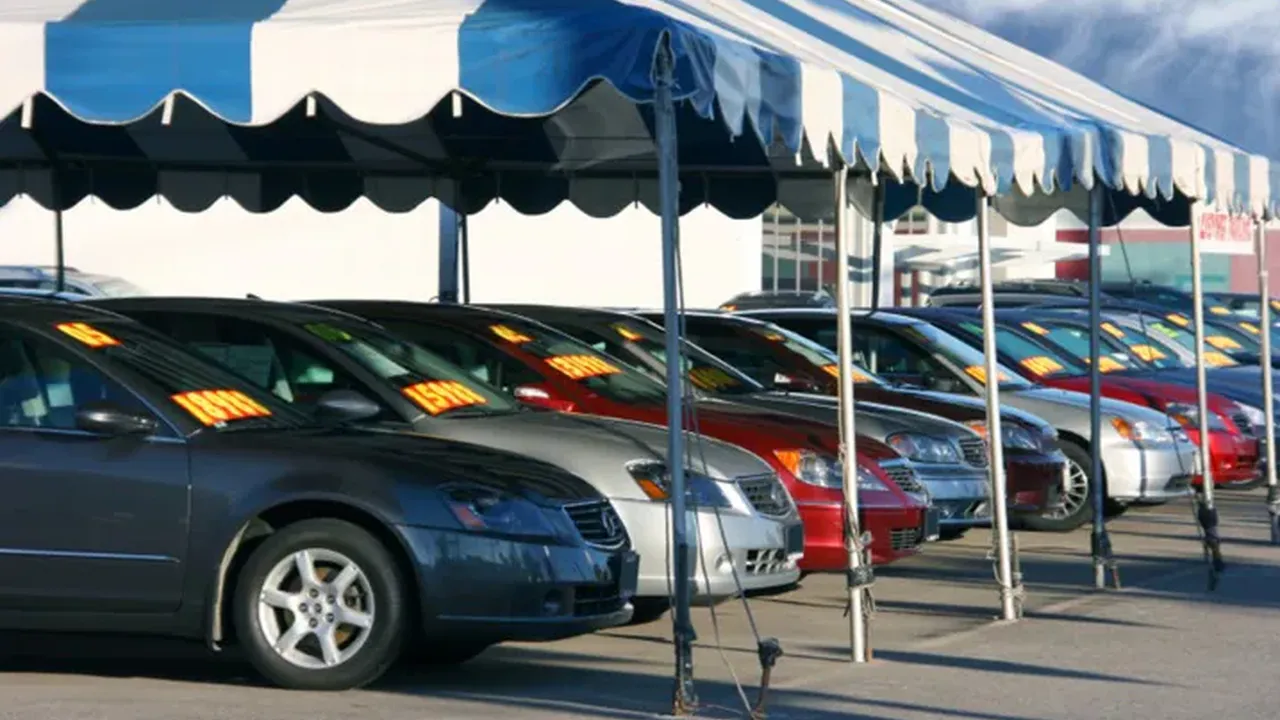Company Car vs. Personal Car Lease

Understanding Car Leases Company vs Personal
So, you're thinking about getting a new set of wheels, huh? Awesome! But the big question is: should you go the company car route or lease a personal car? It's a decision that can impact your wallet, your taxes, and even your sanity. Let's break it down in plain English. Basically, a company car is a car provided by your employer for your use, both for work and, often, for personal use. A personal car lease, on the other hand, is a lease you take out on your own, independently of your job.
Company Car Pros and Cons - Tax Benefits and Drawbacks
The good stuff: Company cars often come with perks. Your company might cover the lease payments, insurance, maintenance, and even fuel! That's a huge weight off your shoulders. Plus, depending on your country's tax laws, there might be some tax benefits for you and your employer. Think of it as a work perk that keeps you mobile. But there's a catch! The personal use of a company car is often considered a taxable benefit. This means you'll have to pay taxes on the value of the personal use you get from the car. The amount of tax you pay depends on how much you use the car for personal trips and the car's value. Also, you're usually limited to the cars your company offers. You might not get your dream car. And if you leave the company, you lose the car! Poof! It's gone.
Personal Car Lease Advantages and Disadvantages - Financial Freedom and Responsibilities
Now, the personal lease side: You get to pick the car you want! Total freedom! You're in charge of the lease terms, the make, the model, the color – everything. It's YOUR car (well, technically the leasing company's, but you get the idea). Plus, you might be able to deduct some of the lease expenses on your taxes if you use the car for business purposes (check with your tax advisor, of course). But, you're responsible for all the costs: lease payments, insurance, maintenance, repairs. It's all on you. And you're locked into a lease agreement, so you can't just return the car whenever you feel like it without penalties. Financial responsibility is key here.
Detailed Cost Comparison - Company Car vs Personal Car Lease
Let's get down to brass tacks: the cost. This is where things get interesting. With a company car, the upfront costs are usually lower for you, since the company is covering the initial expenses. However, the taxable benefit can add up over time. With a personal lease, you're responsible for all the costs from day one. But you might be able to deduct some of those costs on your taxes. The best way to figure out which option is cheaper is to run the numbers. Get quotes for both a company car (including the taxable benefit) and a personal lease (including all expenses), and then compare the total costs over the lease term.
Insurance Considerations - Company Car Insurance vs Personal Car Lease Insurance
Insurance is a big deal. With a company car, the company usually handles the insurance. This is a huge advantage as commercial insurance can be expensive. With a personal car lease, you're responsible for getting your own insurance. Make sure you get adequate coverage to protect yourself from liability in case of an accident. Premiums will vary depending on your driving record, the type of car you're leasing, and the amount of coverage you need.
Maintenance and Repairs - Who Pays? Company vs Personal Lease
Maintenance and repairs are another important factor to consider. With a company car, the company usually covers routine maintenance and repairs. This can save you a lot of money and hassle. With a personal car lease, you're responsible for all maintenance and repairs. This means you'll need to budget for oil changes, tire rotations, and any unexpected repairs that might come up. Read your lease agreement carefully to see what's covered under warranty.
Popular Car Lease Options and Recommendations
Okay, so let's talk about some specific cars! Here are a few options, covering different needs and budgets, focusing on popular lease choices:
The Fuel-Efficient Commuter - Toyota Prius Prime
Scenario: You need a reliable, fuel-efficient car for your daily commute. You care about the environment and want to save money on gas.
The Prius Prime: This plug-in hybrid is a fantastic option. It gets amazing gas mileage, has a comfortable interior, and is known for its reliability. It's perfect for navigating city traffic and long highway drives.
Comparison: Compared to a standard gasoline car, the Prius Prime will save you a ton of money on fuel. Compared to a fully electric car, it offers the flexibility of gasoline backup for longer trips.
Pricing: Lease prices typically range from $300 to $450 per month, depending on the down payment and lease terms.
The Stylish and Sporty Sedan - BMW 3 Series
Scenario: You want a car that's fun to drive, looks great, and has a premium feel. You appreciate performance and luxury.
The BMW 3 Series: This is a classic choice for a reason. It offers a perfect blend of performance, handling, and luxury. It's a joy to drive on winding roads and comfortable for long road trips.
Comparison: Compared to other luxury sedans, the 3 Series is known for its sporty handling and engaging driving experience. Compared to a more basic sedan, it offers a higher level of refinement and features.
Pricing: Lease prices typically range from $450 to $700 per month, depending on the trim level, options, and lease terms.
The Practical and Spacious SUV - Honda CR-V
Scenario: You need a versatile car that can handle everything from grocery shopping to family road trips. You value space, safety, and reliability.
The Honda CR-V: This is a top-selling SUV for good reason. It offers a spacious interior, a comfortable ride, and a reputation for reliability. It's perfect for families or anyone who needs extra cargo space.
Comparison: Compared to other compact SUVs, the CR-V offers a larger cargo area and a more comfortable ride. Compared to a larger SUV, it's more fuel-efficient and easier to maneuver in city traffic.
Pricing: Lease prices typically range from $350 to $550 per month, depending on the trim level, options, and lease terms.
The Rugged and Adventurous Truck - Toyota Tacoma
Scenario: You need a truck for work or play. You enjoy off-roading, hauling equipment, or just having the versatility of a truck bed.
The Toyota Tacoma: This is a legendary truck known for its reliability and off-road capability. It's perfect for weekend adventures, hauling gear, or tackling tough jobs.
Comparison: Compared to other mid-size trucks, the Tacoma is known for its strong resale value and off-road prowess. Compared to a full-size truck, it's more fuel-efficient and easier to park.
Pricing: Lease prices typically range from $400 to $650 per month, depending on the cab configuration, trim level, and lease terms.
Making the Right Choice - Key Considerations
Ultimately, the best choice between a company car and a personal car lease depends on your individual circumstances. Consider your budget, your driving needs, your tax situation, and your personal preferences. Talk to your employer about the company car options and benefits. Get quotes from different leasing companies for personal leases. And don't be afraid to negotiate! The more information you have, the better equipped you'll be to make the right decision.
Understanding Mileage Restrictions - Company Car vs Personal Car Lease
Mileage is a crucial factor in both company car agreements and personal car leases. Company car policies often stipulate mileage limits, and exceeding these limits can result in extra charges. Similarly, personal car leases come with annual mileage allowances, typically ranging from 10,000 to 15,000 miles. Exceeding these limits can incur significant per-mile overage fees. It's essential to accurately estimate your annual mileage needs before committing to either option. If you anticipate driving long distances regularly, a personal lease with a higher mileage allowance might be more suitable, or negotiating a higher mileage allowance with your company may be necessary.
Early Termination Penalties - Company Car and Personal Car Lease Agreements
Life happens, and sometimes you need to get out of a car lease or company car agreement early. Both options can come with penalties for early termination. With a company car, leaving your job typically means forfeiting the car, and you might be responsible for certain fees or costs associated with its return. Personal car leases often have substantial early termination fees, which can include the remaining lease payments, a disposition fee, and other charges. Carefully review the terms and conditions of both agreements to understand the potential financial implications of early termination. Consider gap insurance with a personal lease, which can help cover the difference between the car's value and the outstanding lease balance if the car is totaled or stolen.
Negotiating Lease Terms - Tips for Personal Car Leases
When opting for a personal car lease, remember that the lease terms are often negotiable. Don't be afraid to shop around and compare offers from different leasing companies. Focus on negotiating the following key aspects: the vehicle's price, the money factor (interest rate), the residual value, and the mileage allowance. A lower money factor and a higher residual value will result in lower monthly payments. Also, be wary of hidden fees or add-ons that can inflate the overall cost of the lease. Research the vehicle's market value and negotiate the price accordingly. Consider putting down a minimal down payment to avoid losing a large sum of money if the car is totaled. Secure pre-approval from a bank or credit union for a car loan to have a baseline interest rate to compare against the leasing company's money factor.
Impact on Credit Score - Company Car vs Personal Car Lease
A company car generally doesn't directly impact your credit score, as the car is owned or leased by your employer. However, a personal car lease can affect your credit score in several ways. Applying for a lease requires a credit check, which can slightly lower your score. Making timely lease payments can positively impact your credit history, while late payments or defaults can negatively affect your score. A good credit score is essential for securing favorable lease terms and interest rates. Before applying for a personal car lease, check your credit report for any errors or inaccuracies and take steps to improve your credit score if necessary. Consider a shorter lease term to build credit more quickly, as each on-time payment contributes to your credit history.
Long-Term Ownership vs. Leasing - A Different Perspective
While this discussion focuses on leasing, it's worth briefly considering the alternative: buying a car. Buying a car means you eventually own it outright, building equity. However, it also means dealing with depreciation, which can be significant, especially in the first few years. Leasing allows you to drive a new car every few years without the hassle of selling or trading in a used car. The decision between buying and leasing depends on your long-term financial goals and your preferences for car ownership. If you typically keep cars for many years, buying might be more cost-effective. If you prefer driving a new car regularly and don't want to deal with long-term ownership responsibilities, leasing might be a better fit.
:max_bytes(150000):strip_icc()/277019-baked-pork-chops-with-cream-of-mushroom-soup-DDMFS-beauty-4x3-BG-7505-5762b731cf30447d9cbbbbbf387beafa.jpg)






